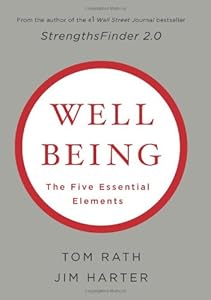I've spent the past decade fairly obsessed with questions of career and work. It would seem reasonable, then, that my favorite career advice I ever ran across would come from some learned source.
A psychology study, perhaps. Or What Color Is Your Parachute? Or maybe even Oprah.
Try none of the above. Not even close.
I've spent years sharing this incredible career advice, but avoiding telling its source. Today I finally come clean.
The Best Career Advice Ever
Before I reveal the secret source (and, no, it wasn't actually a fortune cookie. Nor a bubblegum wrapper. But you're getting warm...), let me first share the advice, as told to me:
You keep looking for the next exciting thing.
You think when you've found "it," it'll feel constantly thrilling and exciting and will always keep surprising you.
The truth is, the RIGHT thing feels more like relaxing into your favorite easy chair than strapping onto a roller coaster.
You think you should feel some sort of tap-tap-tap, reminding you it's there.
In fact, when it's RIGHT, you'll almost forget its presence because it's so consistent it can be easily overlooked.
Trust that the right thing is there when it is, and know that it's precisely what you need.
Why I Love This Advice
This advice saved my sanity, in more ways than one.
First, it was dead on: I did think the perfect career would feel like an adrenaline rush. Hearing otherwise was a head spinner.
Second, it reminds me to be grateful for what I currently have rather than always searching for its replacement.
Third, it made me feel like I could finally - finally! - get off our societal treadmill of "what's next? what's new" and just be. Not be complacent, mind you, but be present and aware and fully, refreshingly engaged.
I've told this advice to countless career coaching clients and college students and the reaction is either total puzzlement - what is up with you? - or complete and utter relief. When it's the latter, I know we're making progress.
The reality is that to create meaningful work, you can't spend all your time and energy searching for "next." While sometimes "next" is completely necessary - especially when "now" has morphed into toxic city - more often than not, we're searching for "next" out of a knee jerk response rather than a genuine need.
I often meet people who have "pretty good" in their hands. Instead of looking to tweak and improve that "pretty good" into "amazing," basing their subtle and gradual changes on knowledge of their values, preferred skills, and favored environments, they want to toss it all and start over.
There must be something more is the common refrain.
The true - and comforting - answer is that "more" comes as you focus on the impact you want to make, and then make changes to more effectively create that impact.
A sexy answer? Uh uh.
But it's honest.
And such an amazing relief.
Secret #1
So now that you've heard the advice - and my testimonial for it! - allow me to let you in on a couple of secrets.
The first secret is that this advice wasn't intended to be about career at all.
In fact, it was told to a nineteen-year-old version of myself.
What do teenagers tend to be preoccupied by? Yup, love.
This was advice about my love life. And let me tell you, my now-husband is grateful I received it; he was the "easy chair" boyfriend I was overlooking at the time.
Secret #2
Now, the source, which I've kept neatly hidden every time I've shared this favorite bit of advice.
Keep in mind that I was nineteen and a college freshman, so go easy on me.
My favorite career advice came from...a psychic.
Yuppers.
What Do We Take Away?
The moral of the story is, don't consult a career coach when you're having rough times, just consult a psychic.
Oh wait, that's not the moral.
The moral is that we tend to try too hard to create a fairytale career love match when no one actually has that.
The search for that thrilling end state - which doesn't exist - can make us feel overwhelmed, confused, and disillusioned.
Take me for instance: I love my work. Ridiculously so. My work feeds me, makes me feel like I'm living my purpose, and, on more occasions than I'd like to admit, sends me back for Round #2 of deodorant.
Even still, my work is more like relaxing into an easy chair than riding on a roller coaster.
Thank goodness I recognized the gentle arm of the chair pushing against me, and continue to recognize it still. It's the best anticlimactic climax I've ever experienced.
Now I want to hear from you: What's your favorite career - or life - advice? (And where did yours come from?!)
Photo Credit: C.P.Storm


























